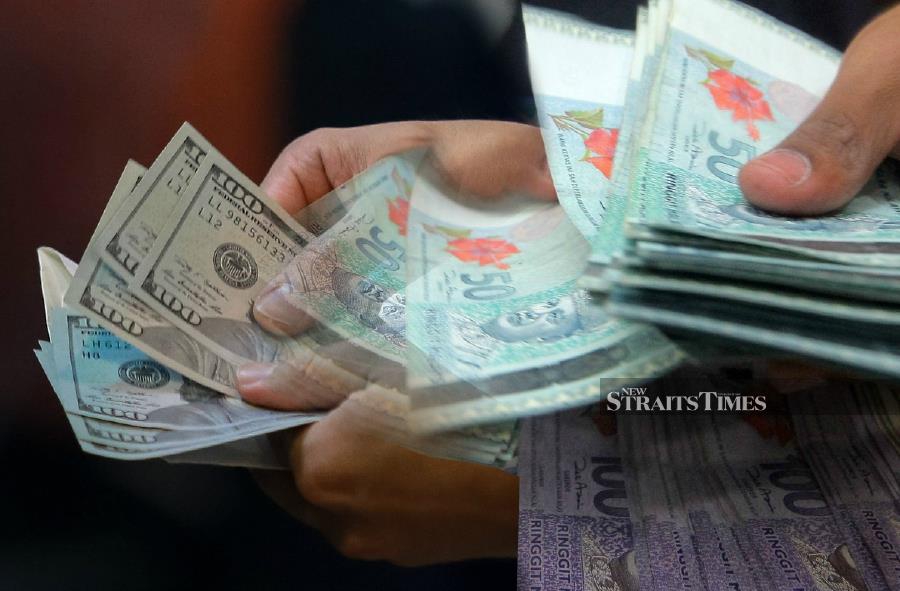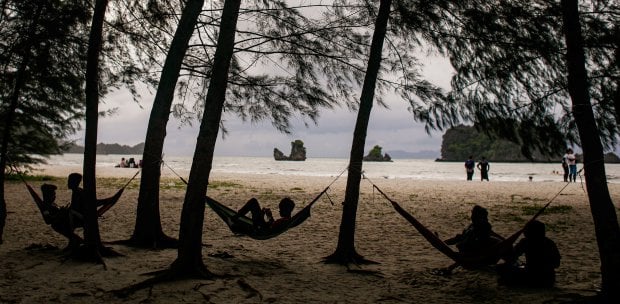IN Malaysia, after nearly two years of the Covid-19 pandemic, the imposition of the Movement Control Order and other travel restrictions, economic hardship and now, the devastating floods, global financial institutions are smelling blood in the water.
While the World Bank and the International Monetary Fund (IMF) ostensibly support development and stability in the Global South and the developing world, too frequently the outcomes of their recommendations and agreements drastically increase inequality, deprivation, dependence and misery.
IMF loans are contingent upon a country's adoption of radical economic structural reforms that invariably harm the poor the most and undermine the sovereignty of governments.
When a country goes through a crisis, the IMF and the World Bank swoop in with offers of assistance. The World Bank volunteers advice on economic policies and it is implicitly understood that following this advice will make a country eligible for IMF financial aid negotiations.
To put it another way, following the advice will make a country more vulnerable to the IMF's predatory lending.
Under the previous Perikatan Nasional-led government, Malaysia adopted sound fiscal policies that enabled the country to navigate the pandemic.
The then prime minister Tan Sri Muhyiddin Yassin drafted a roadmap to economic recovery that did not include borrowing from outside, thus preserving our financial independence and economic sovereignty.
After his departure from the premiership, Muhyiddin was appointed chairman of the National Recovery Council (NRC), empowered to continue this roadmap, but only in terms of supervising the vaccination rollout and general management of the government's response to Covid-19.
The management of the economy is not strictly under the remit of the NRC.
The current government is undoubtedly closely linked to former prime minister Datuk Seri Najib Razak, whose New Economic Model was supported by the IMF and World Bank.
During that final decade of the Barisan Nasional government, living standards steadily eroded. The number of impoverished families ballooned, and inflation was the highest in the region.
Najib's administration boasted of reducing poverty and increasing per capita income. Yet, Malaysians complained often about the increasing difficulty in making ends meet. Inflation hit an eight-year high in January 2017 and kept climbing at a rate said to be the quickest in the region.
The return of Umno to power has been accurately understood as the resurrection of the BN government of Najib, with many speculating that he acts as the prime minister's chief adviser.
International lenders have clearly taken note of the re-emergence of Umno and the Najib style of governance.
The World Bank recently issued an assessment of Malaysia's economic prospects and offered its suggestions, which, if adopted, would pave the way for the eventual undermining of Malaysia's economic growth, stability, prosperity and sovereignty.
On the surface, the recommendations sound good — continue and even increase government financial expenditures to the poor, unemployed and, presumably, victims of the recent floods.
But the endgame is to create unsustainable government debt that will necessitate international assistance — loans that will sabotage the economy and turn our emerging productive industries into debt-servicing vehicles.
A report by Oxfam concluded that 73 of the 85 nations that have entered into loan agreements with the IMF since the pandemic began will be forced to implement harsh austerity measures once the health crisis subsides.
The World Bank and the IMF encouraged these nations to initially spend as much as possible to mitigate the effects of the pandemic, precisely to intensify their vulnerability and their dependence on outside funding.
In short, they have exploited the pandemic and the incapacity of the developing world to deal with it, forcing them to ransom their long-term futures for immediate short-term assistance
Malaysia avoided this trap through the masterful economic handling of the crisis by Muhyiddin throughout 2020.
By corralling the nation's resources, his administration delivered unprecedented stimulus and relief packages without bending to the will of international lenders while safeguarding Malaysia's economic future.
We are at a pivotal moment. After almost two years of the Covid-19 crisis, the damage is compounded by the recent devastating floods.
The predators are circling. Without proper planning, management and leadership, the future of our economy could be at risk.
The World Bank and IMF believe, and with good reason, that the time is right to throw their nets around Malaysia, and if our government allows that to happen, we will be trapped for generations to come.
The writer is a Kuala Lumpur-based human rights activist





